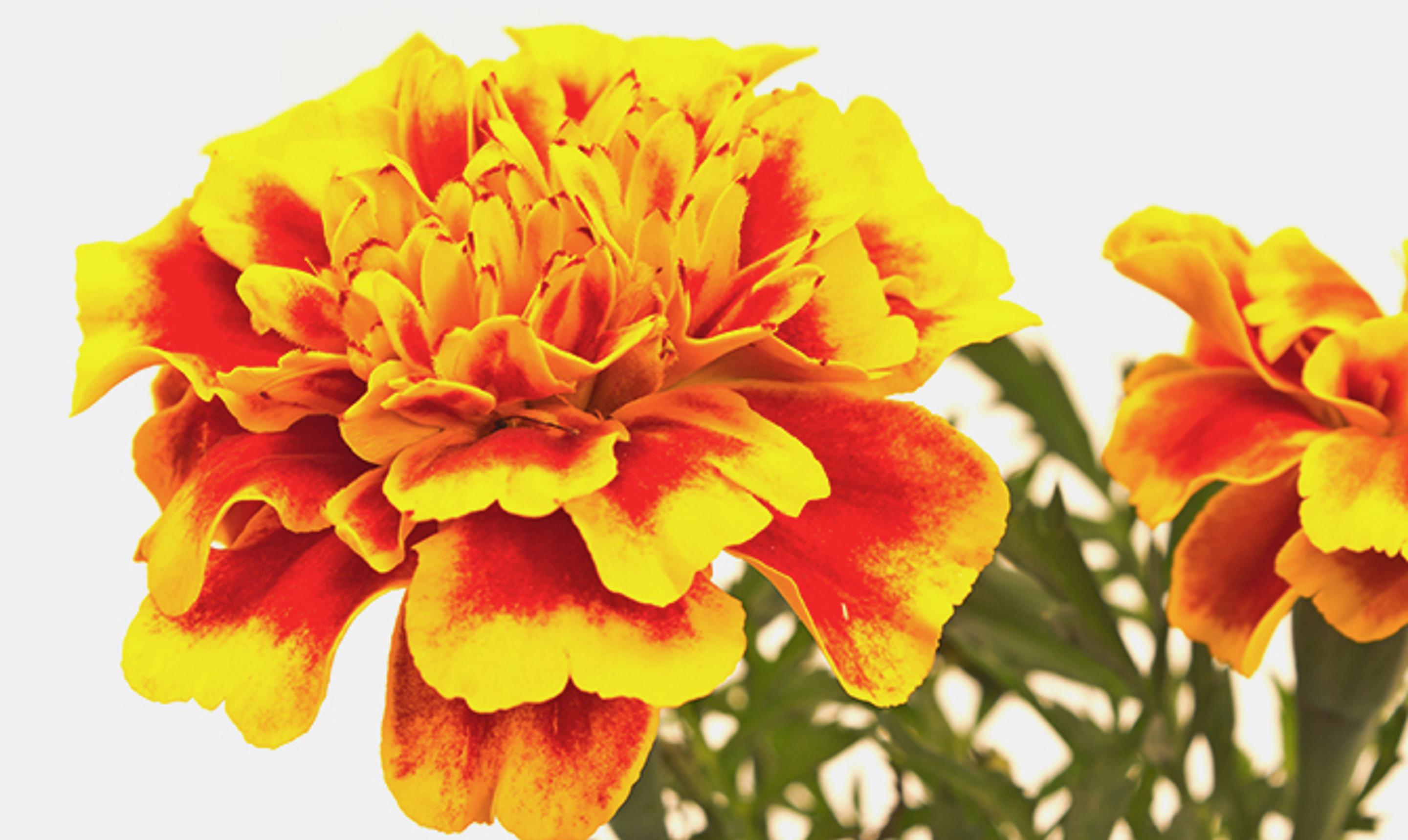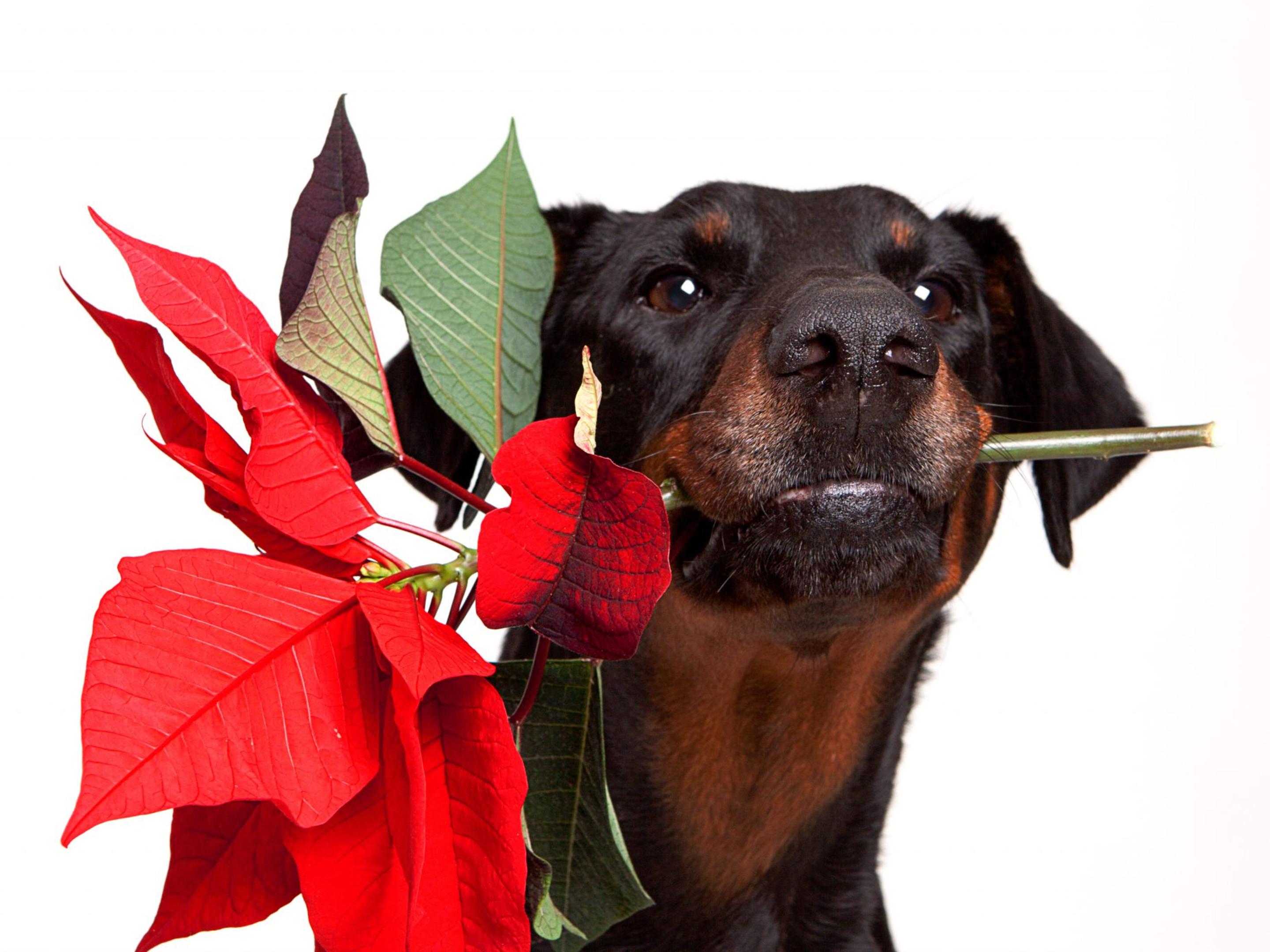
November 27, 2024
7 Pet Safe Alternatives to Traditional Holiday Flowers
November 27, 2024
Pet-Safe Plants for a Festive Family Home
Christmas time is all about joy, warmth, and turning your home into a wonderland of merry charm. But for pet parents, the season also comes with its challenges—like the sneaky dangers hiding in some of our favorite holiday foliage. These festive staples might look merry and bright, but they can spell trouble for our furry companions.
Creating an animal-safe haven isn’t just a thoughtful decision. It’s a must for ensuring peace of mind and avoiding emergency trips to the vet during your celebrations.
The good news? You don’t have to sacrifice style for safety. From cheerful blooms to elegant greenery, we’ve rounded up a list of pet-safe flowers and house plants that are as kind to your furry friends as they are stunning.

1. Christmas Cactus: The Blooming Holiday gift
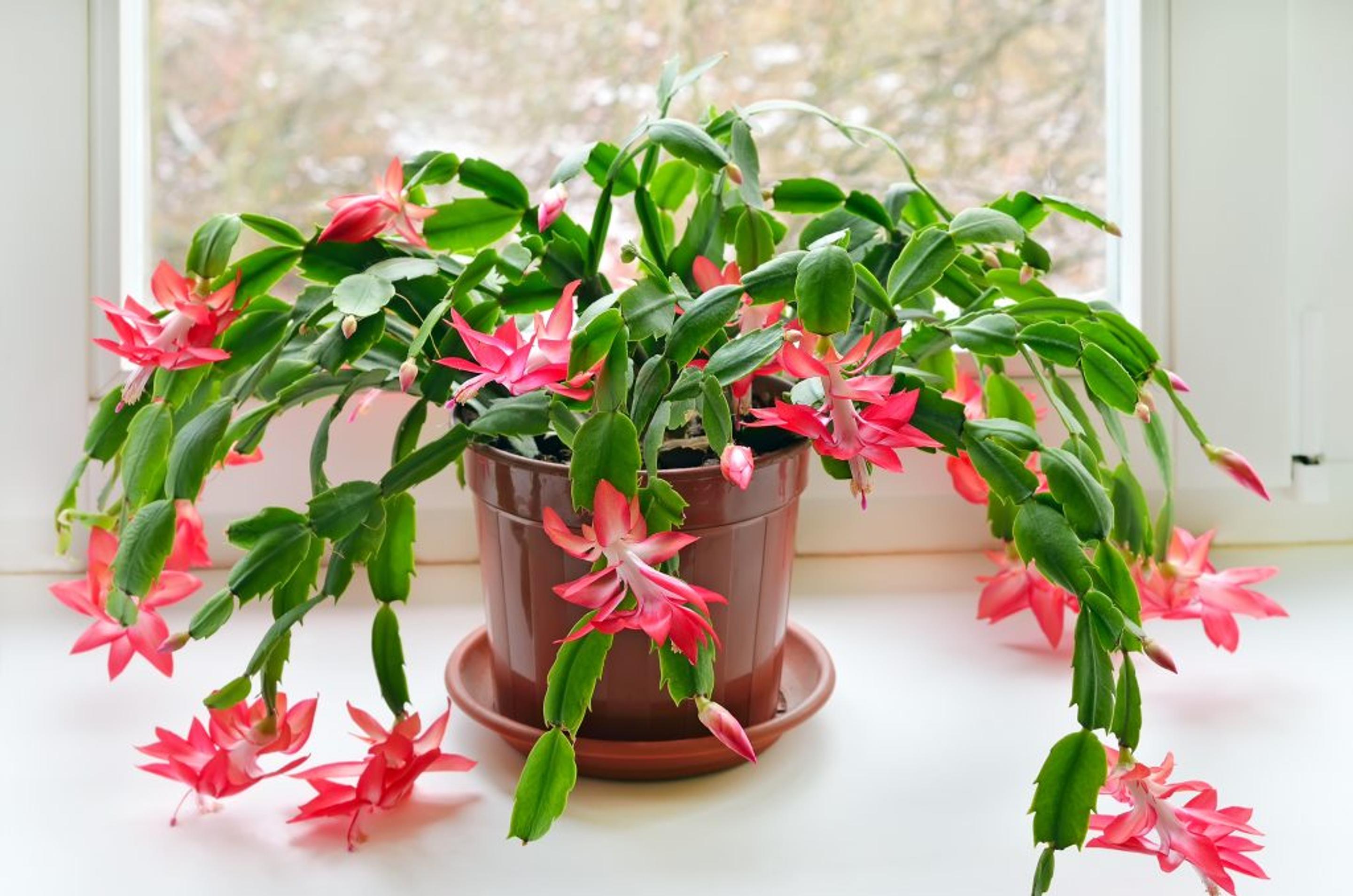
The Christmas cactus, with its striking winter blooms, is a festive favorite that brings holiday cheer. Its spiky leaves make it a fantastic alternative to mistletoe and its easy maintenance makes it ideal for busy households. Oh and did we mention that it symbolizes endurance and love, qualities that resonate with the festive spirit?
So, we’ve probably sold you on the Christmas succulent at this point—but we’re guessing you’re also wondering: is the Christmas Cactus poisonous to cats and dogs? Thankfully, no! You can add it to your list of pet-safe plants.
The Christmas Cactus, with its similar shaping, colors, and deep green foliage, looks similar to mistletoe but won’t harm your pets.
A win-win!
Mistletoe contains multiple substances that are toxic to both dogs and cats, including toxalbumin and phoratoxin viscumin (Lectins, Phoratoxins). This can cause severe intestinal upset as well as a sudden and severe drop in blood pressure, breathing problems, and even hallucinations in pets and people.
Whether your decorating your home for the holidays or looking for a pet-friendly gift, your four-legged friends will thank you (with snuggles and slobbery kisses, of course).
Christmas Cactus as a Pet-Safe Plant for the Holidays
Safe for both cats and dogs, the Christmas cactus is a colorful and worry-free holiday plant. Plus, it thrives with minimal care (who doesn’t love an easy-to-maintain houseplant?) and will look great alongside the rest of your festive decor.
2. Gerbera Daisy: Bright and Cheerful

With its radiant, daisy-like blooms in a rainbow of colors, this cheerful, pet-friendly flower instantly brings joy to any setting. Whether you prefer classic ruby reds, wintery whites, or a mix of vibrant hues, the gerbera daisy fits seamlessly into your seasonal decor. Plus, it represents cheerfulness and innocence, perfectly capturing the essence of Christmas.
Gerbera Daisy: A Pet-Friendly Holiday Choice
This pet-safe flower is 100% non-toxic, meaning you can deck the halls without worrying about your whiskered friends. Plus, they’re surprisingly hardy and can thrive indoors with minimal fuss, making them perfect for the busy Christmas season.
3. Red Rose: The Classic Symbol of Love
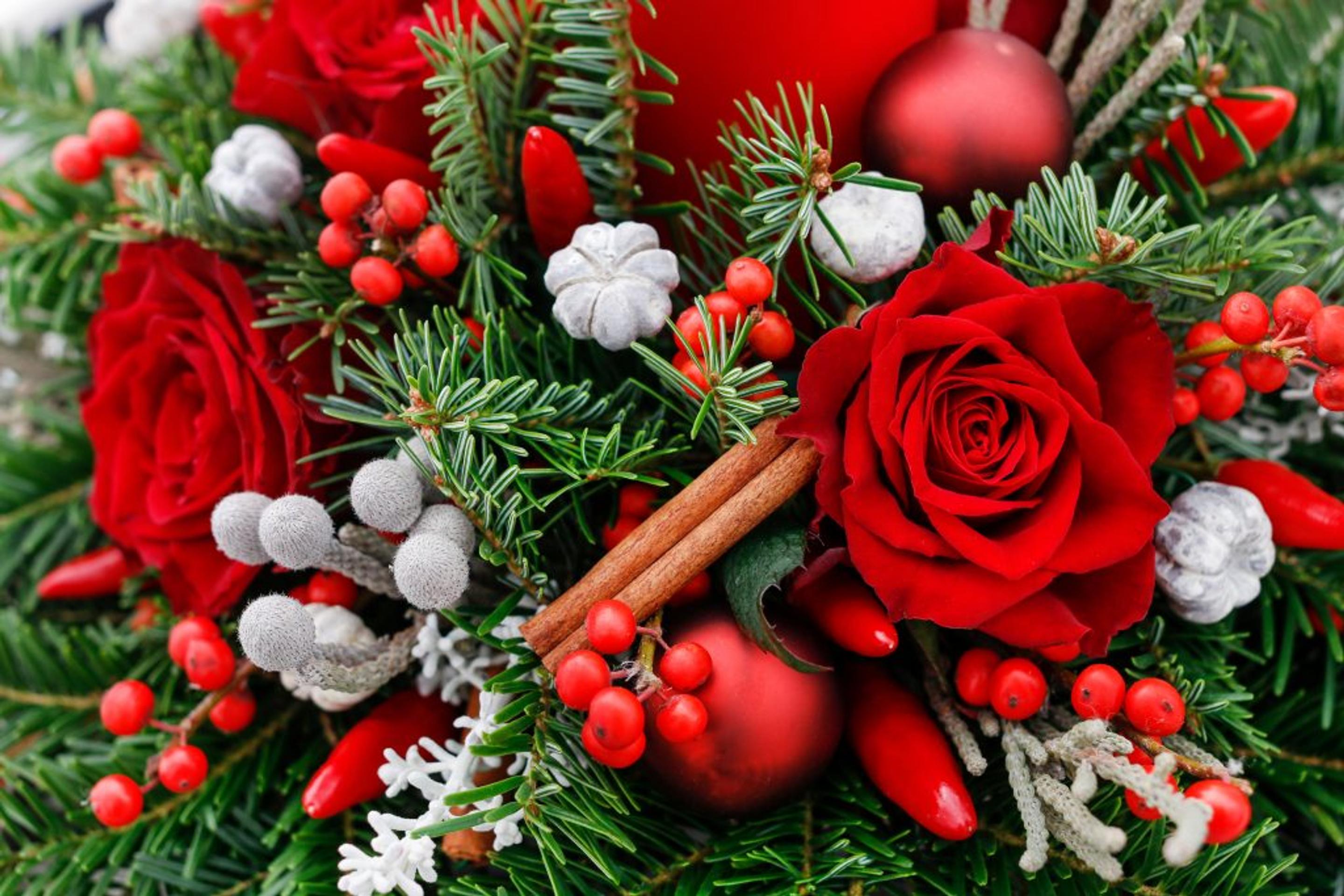
When it comes to flowers, few can match the timeless beauty and romance of the red rose. This classic bloom effortlessly elevates any floral arrangement with its rich, velvety petals and undeniable elegance.
The ever-so-popular holiday poinsettia is a true Christmas staple, but its sap is also incredibly toxic to dogs, cats, and even horses. Poinsettia can irritate the mouth and stomach, sometimes causing vomiting.
Roses are a classic and safe alternative to poinsettias for both dogs and cats.
Signifying love, admiration, and deep emotion, the red rose is a fitting flower for the festive season when love and connection take center stage.
But the best part? Red roses are fantastic cat-friendly plants and dog-safe flowers. No need to worry about curious sniffers or accidental nibbles here!
Red Rose as a Pet-Safe Option
Harmless for both cats and dogs, red roses are perfect pet-friendly flowers: effortlessly beautiful and completely non-toxic. Pair them with seasonal greenery, like holly or evergreen sprigs, for a classic look, or let their beauty shine on its own in a simple vase.
4. Achira (Canna Lily): Tropical Festivity
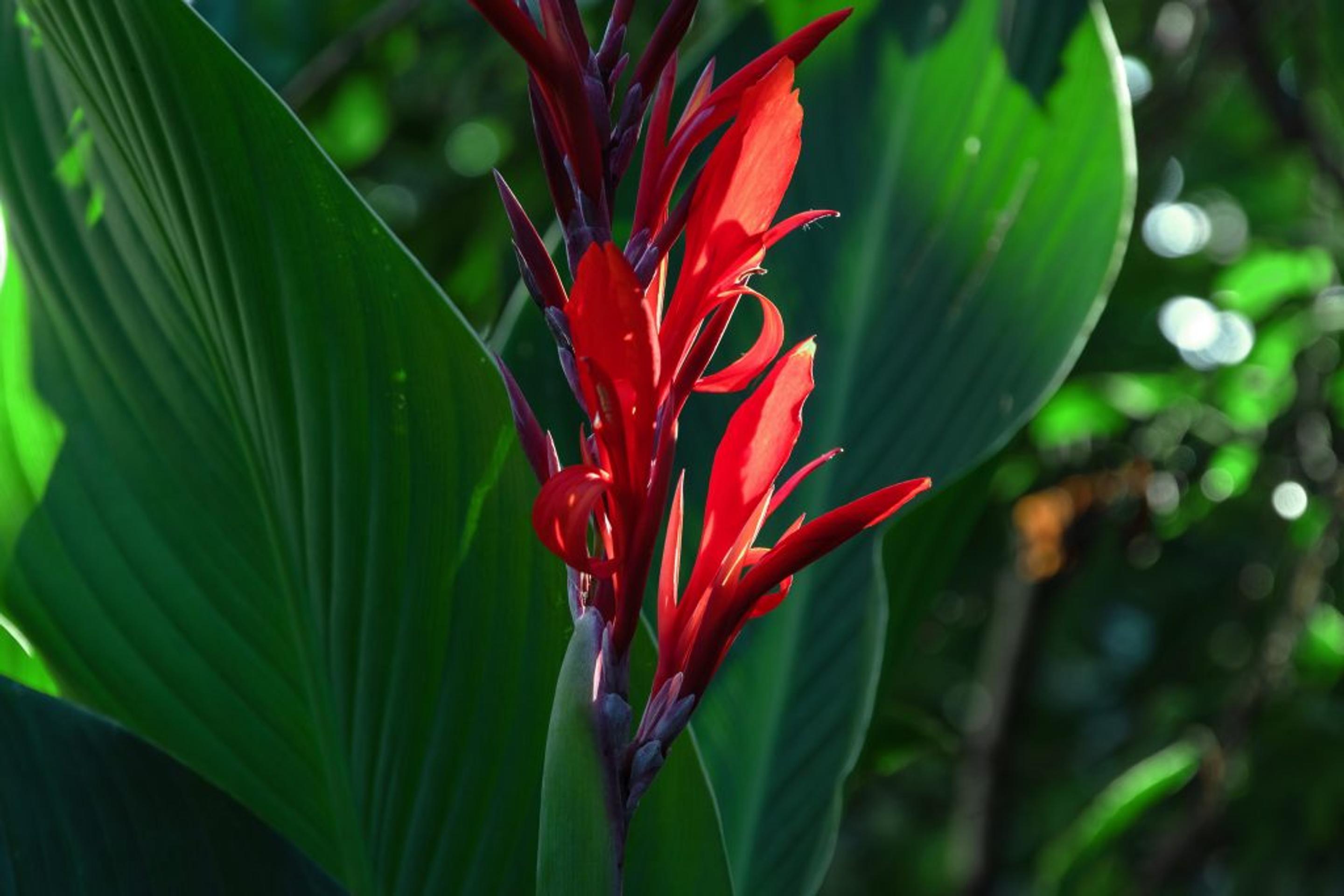
Who says tropical vibes are just for summer? The achira, also known as the canna lily, is here to prove otherwise. With its bold, vibrant blooms in fiery reds, oranges, and yellows, this plant can turn your holiday decor into a celebration of warmth and color.
The canna lily is all about beauty and strength. Its colors and commanding presence encapsulate the energy of Christmas, reminding us of festive joy.
Archia makes a perfectly pet-safe alternative to Amaryllis.
While it’s not as big, bold, and boisterous as Amaryllis, this beauty will still make a lovely addition to your holiday decor (and makes the perfect gift for the flower-loving pet owner in your life).
In fact, Archia is so safe, you can even substitute its root powder as a substitute for cornstarch.
Amaryllis, on the other hand, . It contains many toxins, including Lycorine, which causes salivation, gastrointestinal abnormalities, lethargy, and tremors in both cats and dogs.
Achira as a Pet-Friendly Flower
Non-toxic to both cats and dogs, the canna lily offers a stunning alternative to traditional festive plants. Plus, its sturdy blooms can handle the hustle and bustle of holiday gatherings without losing their charm.
5. Autumn Olive: A Decorative Touch
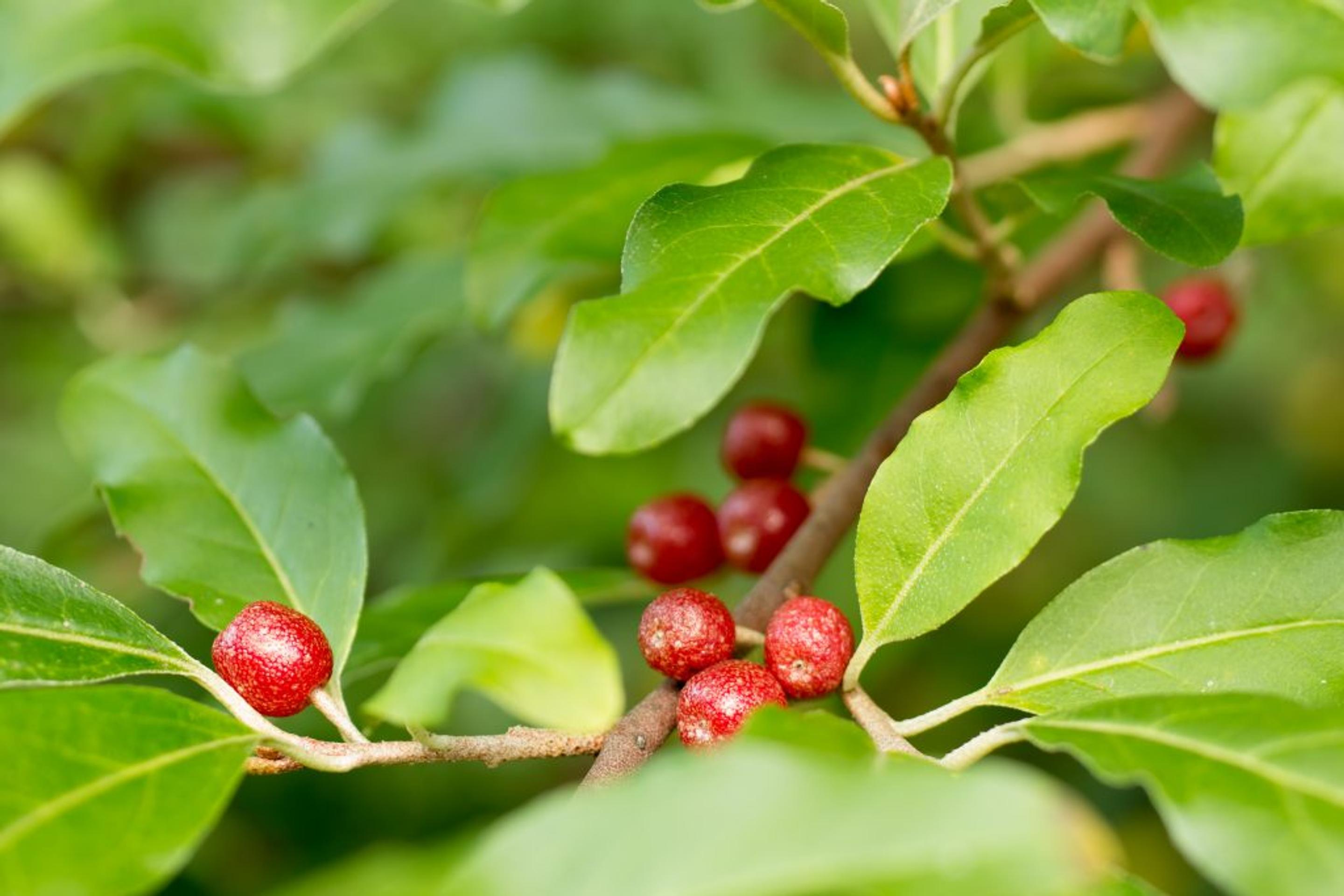
For a subtler decoration, consider autumn olive. With its delicate, silvery-green leaves and clusters of small, pearl-like berries, this plant brings a touch of natural elegance to your home.
The autumn olive beautifully represents resilience and growth—something to meaningfully reflect on as the year comes to an end. It’s often used as an alternative to holly (which is very toxic to children and pets) with its pretty red berries and festive green foliage.
You can also make Autumn Olive Jam from these berries (yes, they’re that edible!) It’s thick, delicious, and jam-packed full of antioxidants.
Autumn Olive as a Safe Addition for Pet-Friendly Homes
Whether displayed in arrangements or used as a natural accent around the home, autumn olive combines elegance with pet safety, ensuring your decorations are as thoughtful as they are beautiful.
6. Waxflower: Long-Lasting and Fragrant
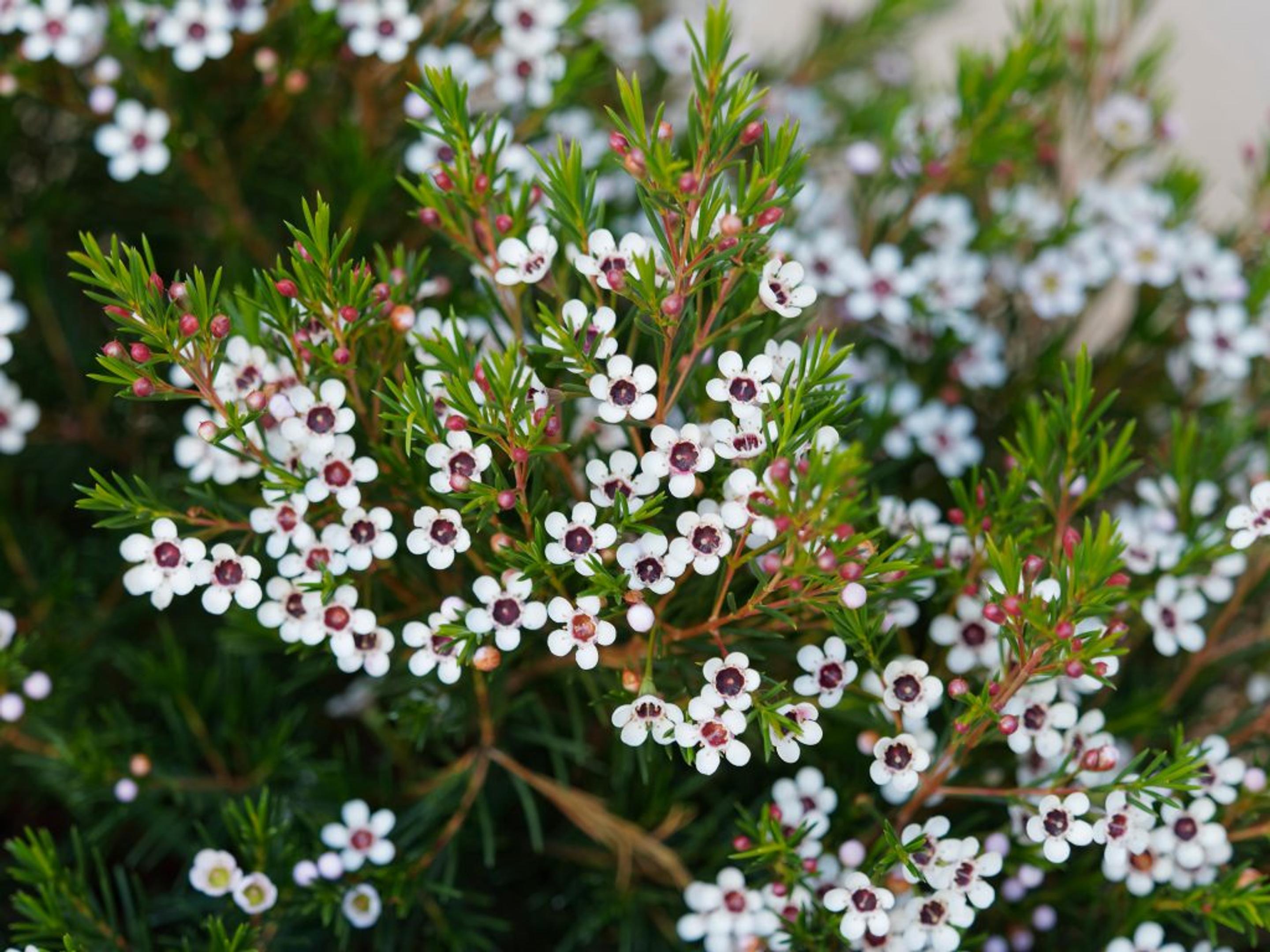
Waxflowers are a charming addition to seasonal decor, with their delicate, fragrant blooms and waxy petals. Their light fragrance adds a refreshing touch to your space, and their long-lasting blooms ensure they stay vibrant throughout your celebrations.
Representing lasting love and happiness, Waxflowers add warmth and meaning to your decorations.
Even better? Waxflower’s vase-life is nothing short of impressive. With the appropriate care, your fresh-cut waxflower can last up to three weeks.
Simply replace dirty water with fresh water every few days, and re-trim the base of the stems at an angle to ensure optimum water intake.
Waxflower as a Pet-Safe Plant
Waxflowers are non-toxic flowers and a stylish option for homes with pets. They’re durable, low-maintenance, and ideal for adding a touch of elegance.
7. Phalaenopsis Orchid: Elegant and Exotic

The Phalaenopsis Orchid is the ultimate statement pet-safe flower for anyone looking to elevate their seasonal decor. Its sleek stems and stunning, exotic blooms grow in soft whites, vibrant pinks, and deep purples to bring a sense of luxury to your Christmas florals.
Oozing elegance, love, and beauty, the Phalaenopsis Orchid captures the spirit of connection and grace, making it a meaningful addition to festive settings.
The best thing about these orchids? Not only do they make a stunning and thoughtful holiday gift and brighten up an indoor space throughout the winter season, but they’ll also re-bloom with proper care (and they’re a perfect plant for beginners).
Your Phalaenopsis could bloom every six months with these tips:
- Once the final bloom has wilted or dropped, cut the browning stem down to about 3 inches in height and continue care as normal
- Feed your orchid a diluted liquid fertilizer to help promote growth and new blooms.
- Once a new leaf begins to grow, your orchid is ready to re-bloom
- Relocated your plant to a cool area (temps around 55-65 degrees F) and bright indirect sunlight
- Prep for some fresh blooms in about a month’s time!
Phalaenopsis Orchid as a Safe and Stylish Holiday Option
This beautiful pet-friendly flower is one of the safest for cats and dogs, allowing you to decorate with sophistication while prioritizing your pets' well-being.
Long-lasting and low-maintenance, the phalaenopsis orchid is great for adding effortless beauty to any pet-friendly home.
Which plants ARE Poisonous to Cats and Dogs?
Now that we’ve explored the pet-safe plants that aren’t toxic to cats and dogs, let’s look at some popular holiday favorites that can pose serious risks to your furry friends. Here are a few to avoid:
- Mistletoe: Toxic to both cats and dogs, mistletoe can cause gastrointestinal upset and cardiovascular issues.
- Poinsettia: Although not as dangerous as commonly believed, poinsettias can still cause mild irritation in pets.
- Holly: Berries from holly plants can lead to vomiting, diarrhea, and lethargy in pets.
- Amaryllis: If pets eat amaryllis, they could become very sick with symptoms including vomiting, diarrhea, abdominal pain, depression, hypersalivation, or tremors.
If you suspect your pet has ingested a potentially toxic plant, contact your veterinarian immediately.
Pet-Safe Flowers & Plants FAQs
Here are rapid fire answers to all your questions about pet safe flowers & plants.
Cats FAQs
Are sunflowers toxic to cats?
If you have a soft spot for both cats and sunflowers, then you’re in luck! Sunflowers aren’t harmful to cats.
Are dahlias poisonous to cats?
Unfortunately, dahlias are as beautiful as they are toxic to cats, causing mild gastrointestinal issues and mild skin irritations.
Are gerbera daisies toxic to cats?
Nope! Gerbera daisies make the list of cat-friendly flowers. However, not all daisies are safe for cats. Chamomile, chrysanthemum, showy daisies, seaside daisies, and daisies that are yellow in the middle and have white petals are all toxic for pets.
Are petunias toxic to cats?
Petunias are listed under ASPCA's non-toxic flowers for pets, meaning they aren’t toxic for cats. However, it’s best to prevent your cat from actively eating them (or any flower for that matter!).
Are snapdragons poisonous to cats?
You can add snapdragons to your list of pet-friendly plants that aren’t toxic to cats. These flowers won’t harm your furry friend.
Dogs
Are marigolds poisonous to dogs?
According to the ASPCA, marigolds aren’t poisonous to dogs. If your four-legged pal eats a love of them, they could experience an upset stomach but the symptoms shouldn’t last and aren’t harmful in the long run.
Are roses toxic to dogs?
Rose and dog lovers rejoice! Roses aren’t toxic to dogs, regardless of their color.
Are petunias poisonous to dogs?
Whether you’re planting these blooms in your garden or adding them to a fresh-cut bouquet, rest assured that petunias aren’t poisonous to dogs.
Are dahlias poisonous to dogs?
Dahlias are poisonous to both dogs and cats. Though they aren’t as toxic as other plants, they can still cause mild skin irritations and digestive issues.
Are zinnias poisonous to dogs?
One of our favorite long-lasting and highly resistant flowers, zinnias are non-toxic to pets, including dogs.
Shop Pet-Safe Plants & Flowers Today
Creating a festive holiday home that’s also safe for your pets doesn’t have to be a challenge. With these stunning cat and dog-safe house plants, you can enjoy the season worry-free. Whether you’re decorating with cheerful gerbera daisies, timeless red roses, or elegant phalaenopsis orchids, your home will be a haven of warmth, beauty, and pet-friendly joy.


